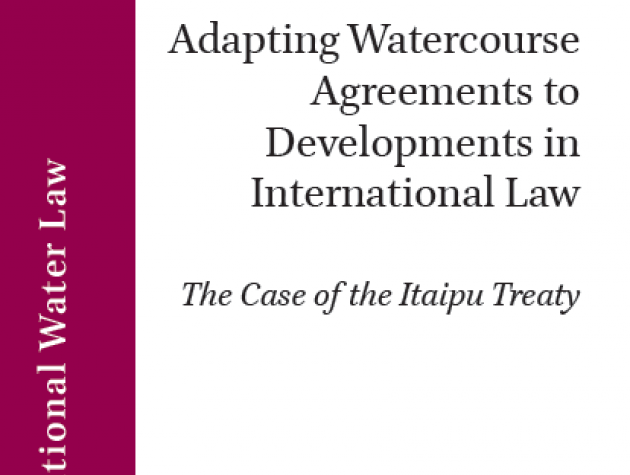GEG Seminar: Corruption and Development
GEG brought together an inter-disciplinary panel to discuss this provocative question. More details of the discussion are below.
Event Summary
The links between corruption and development are the subject of intense debate. Do developing countries need to reduce corruption in order to develop, or is a reduction in corruption the outcome of development? What leads to high levels of corruption, and what roles should developing country governments, multinational companies, international donors, and civil society organisations play in fighting it?
GEG hosted a seminar on 26 October where four distinguished panelists responded to these questions
David Anderson, Professor of African Politics, Oxford
Liz David-Barrett, Research Fellow at the Centre for Corporate Reputation, Said Business School, Oxford
Alexander Kupatadze, Oxford-Princeton Global Leaders Fellow, GEG
Mark Philp, University Lecturer in Politics, Oxford
Ngaire Woods, Dean of the Blavatnik School and Director of GEG, chaired the seminar
Is reducing corruption a prerequisite for development? Dr Alex Kupatadze argued that the relationship between political competition, corruption, and development are complex. In some contexts, an increase in political competition can reduce corruption as it results in political groups holding each other to account in the face of upcoming elections. However in other contexts, increased political competition results in increased fighting over rents, and can exacerbate corruption. In some cases, corruption can be an effective state-building tool, as it enables the co-optation and accommodation of divided elites and thus consolidates political power. When asked how corruption might be reduced, he argued that it is critical that there is ‘an inter-elite consensus that corruption is wrong.’ Without this normative consensus, it is hard to implement anti-corruption measures.
For Dr Liz David-Barrett, reducing corruption is definitely a prerequisite for development. She noted that corruption is a barrier to building institutions, it deters investment, it deters innovation, leads to the misallocation of resources, and undermines the rule of law. David-Barrett noted that some types of corruption are worse for development than other types. State capture is particularly problematic as it leads to a change in a whole law or policy to suit the interests of a private actor, and this has long-term implications. Administrative corruption, on the other hand, occurs during implementation, and involves a private actor avoiding a particular law or policy.
Corruption is worse in some contexts than others. It is most damaging when a country is trying to create trust in formal institutions and ensure that actors play by the new rules of the game. Building trust in state institutions is crucial to development, and corruption undermines this process. Finally, while low-level corruption often gets more attention because it is more apparent, high-level embedded corruption is a more serious problem.
Professor David Anderson agreed that reducing corruption is bound to assist in development. Reducing corruption, however, is not a linear process. While many argue that democratization, creating a rule of law, and liberalizing the economy so the state has less influence will lead to a reduction in corruption, in reality this process is far less straightforward. He used the Goldenberg scandal in Kenya to illustrate this argument. Conditionality imposed by international institutions was at the heart of the corruption scandal. The liberalization agenda, particularly the promotion of exports, was used by senior civil servants and politicians to siphon public money. In sum, there is a need to beware of attempting to reduce corruption through the use of formal rules, as these can be gamed.
Dr Mark Philp questioned our ability to substantiate claims of links between corruption and development. These claims rest on appallingly weak empirical data, which often overlook the complexities of particular cases. For instance the Corruption Perceptions Index (CPI), is deeply flawed and biased toward the perceptions of Western businesspeople. Moreover, perceptions are not an independent variable as these perceptions tend to become self-reinforcing. This is one of the dangers of political parties running on anti-corruption platforms. When you provoke a discussion of corruption, it increases perceptions of corruption. Overall, we lack a reliable basis for making claims.
Dr Philp cited the cases of UK and US history to question the received wisdom that corruption undermines development. He argued that if corruption is an established way of doing things, it can lead to predictability, which is important for economic development. He then questioned the analytical purchase of the concept of corruption. What are the standards that “we” use to judge “them” corrupt? Our judgements of corruption are based on our practices and traditions. The real danger is that tackling corruption becomes a Western imposed model to deal with the messy reality of business in poor countries.
Given that we lack conceptual clarity over “corruption,” it is more helpful to ask specific questions about each case. The most important question we must ask in each case is: cui bono? How do things work in practice? What are the costs and benefits of them working in this way? How could things be arranged differently, and what would the distributive consequences be?
During the discussion, panelists and the audience discussed the need to distinguish between practices that undermine development and those that contribute to development, and between developmental governments and predatory governments. Finally it was noted that while government officials are normally seen as the perpetrators of corruption, this is not necessarily the case. Public officials can play a number of roles; a public official can be a predator, an accomplice, or a victim.







